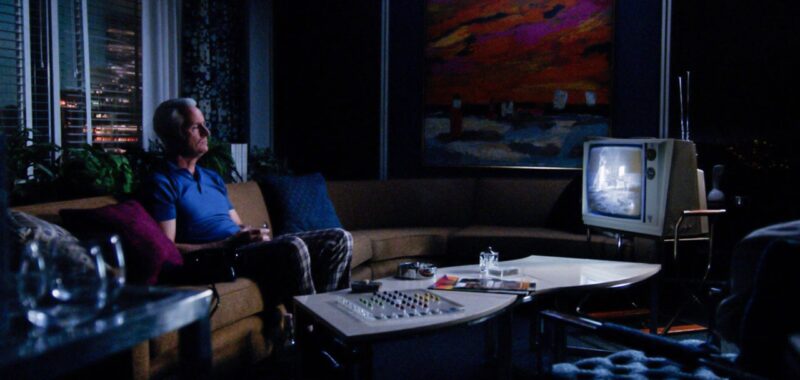This story was featured in The Must Read, a newsletter in which our editors recommend one can’t-miss story every weekday. Sign up here to get it in your inbox.
In the late ‘90s, the writer Sarah Vowell did a piece for This American Life about rewatching Francis Ford Coppola’s The Godfather. I don’t mean “rewatching” in the “Hey, it’s been years, let’s see how it holds up” sense—Vowell watched The Godfather over and over, on VHS, chipping off bits of the film in every free moment, and some weeks she watched a little bit of it every day, picking up wherever she’d left off last time. “Sometimes,” she wrote, “it took weeks to get through the whole thing. If I had a free hour between earth science lab and my work-study job, I’d sneak home and get through the scene where Sonny Corleone is gunned down at the toll booth, his shirt polka-dotted with bullet holes. Or, if I finished writing a paper analyzing American mediocrity according to Alexis de Tocqueville, I’d reward myself with a few minutes of Michael Corleone doing an excellent job of firing a pistol into a police captain’s face.”
I love this story, which became the title piece in Vowell’s book Take the Cannoli, because it’s a perfect elucidation of what it feels like to be young and uncertain of your beliefs, and of the way we often find that longed-for clarity and certainty in the strangest places—in this case, a film about midcentury Italian-Americans murdering each other for control of the New York rackets. But I also love this story because the older I get the more I understand the impulse behind watching The Godfather on a loop, not as a two-hour movie but as a world you step in and out of—except my Godfather is Mad Men, a show that I am always either actively rewatching or looking forward to rewatching again. This is not me making the argument that Mad Men is better than The Godfather, or that it represented the peak of the Peak TV era—life’s too short for those kinds of arguments. What I’m saying is that, for me, it’s the most rewatchable show of the Peak TV era, an IV drip of pleasure whose potency remains undiminished even after multiple trips around the carousel.
Yes, with each revisit, the show’s ostensibly cool protagonist Don Draper seems like a bigger, shittier piece of shit. I’m not here to talk to you about problematic antiheroes and I’m not here to reopen the case of Don Draper; either he lives in your heart or he doesn’t. But every time I dip back into the show that’s ostensibly his life story, the whole project seems deeper, sadder and funnier—and a different supporting character emerges as an MVP. Last go-round, I became convinced Pete Campbell was one of the great protagonists in all of American fiction; the time before that, it was Peggy. The characters don’t change, of course, but I do; I get older, and they live out the same ten years over and over, their historically tumultuous lives becoming a fixed point in my own turbulent life. (Sometimes I’ll try to line up Dark Side of the Moon/Wizard of Oz style conjunctions to maximize the resonance, timing a winter rewatch so that a Christmas episode like “Shut the Door, Have a Seat” lands during actual Christmas. I used to calculate Don Draper’s age in a given season, taking note of when it matched up with my own, wondering what it would feel like to be 41 in 1967; now I’m older than we ever saw Don get. It’s enough to make a man listen to half of “Tomorrow Never Knows” and then wander dejectedly off to bed.)
You could do this with any show, of course, but I’m convinced Mad Men is the best one to do it with, because it’s so explicitly about the passage of time. Something about the Godlike perspective afforded me as a person who knows far more than Pete and Joan and Peggy do about what’s going to happen to them is a balm for the existential chill of living my own life in a benighted linear fashion, as we all do. To reiterate the theme of this package: TV scene is crazy, shows start up each and every day, special new shows, gotta catch ‘em all. Sure, sure. But at the literal and figurative end of the day, are you a processing system—a machine that turns recommendations from TV critics, who by definition are more into new TV shows than you are, into watched shows? Or are you a human being who uses an entertainment medium for its intended purpose? When in doubt—whether it’s what-to-watch doubt, or sitting-out-on-your-freezing-balcony-just-to-feel-something what-does-it-all-mean doubt—just rewatch Mad Men. Whether it’s your first time or your fiftieth, your best rewatch is like the best cigarette of the day: namely, the next one.

